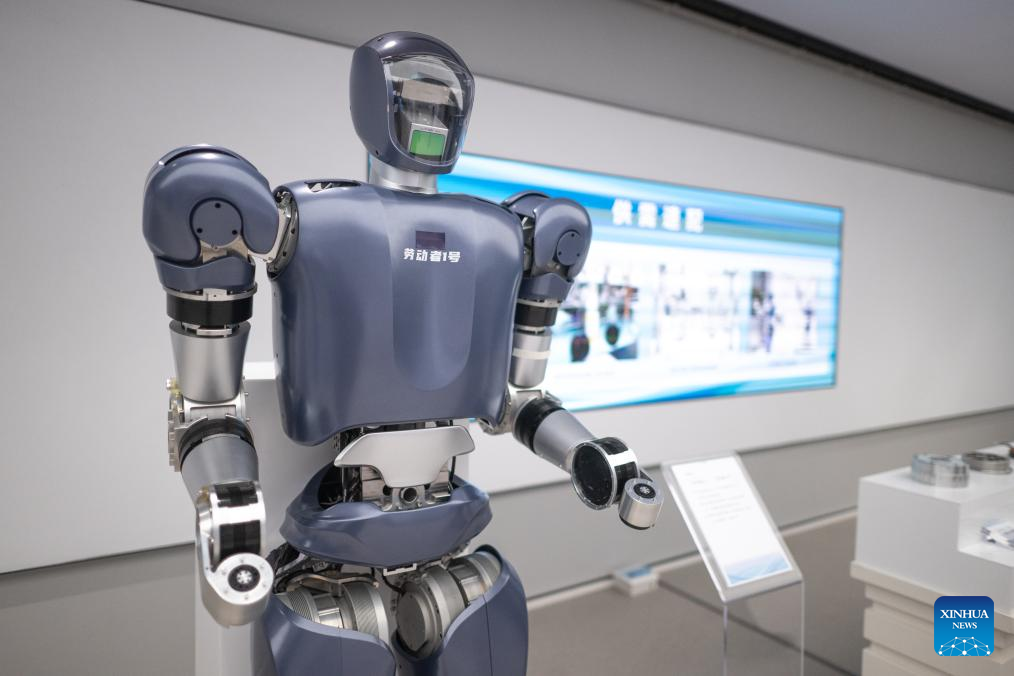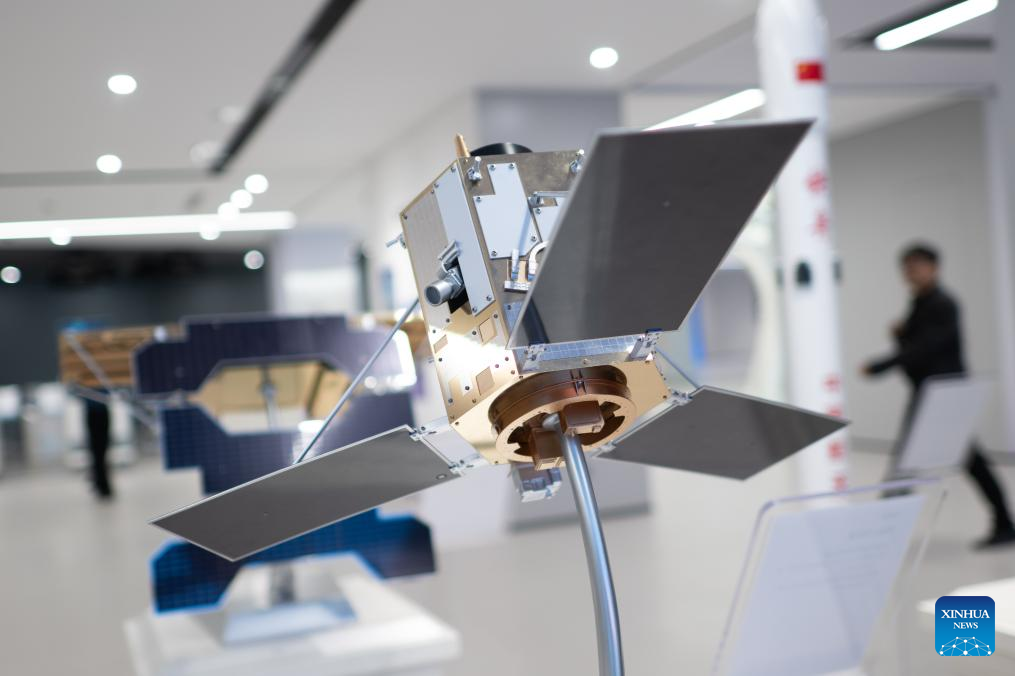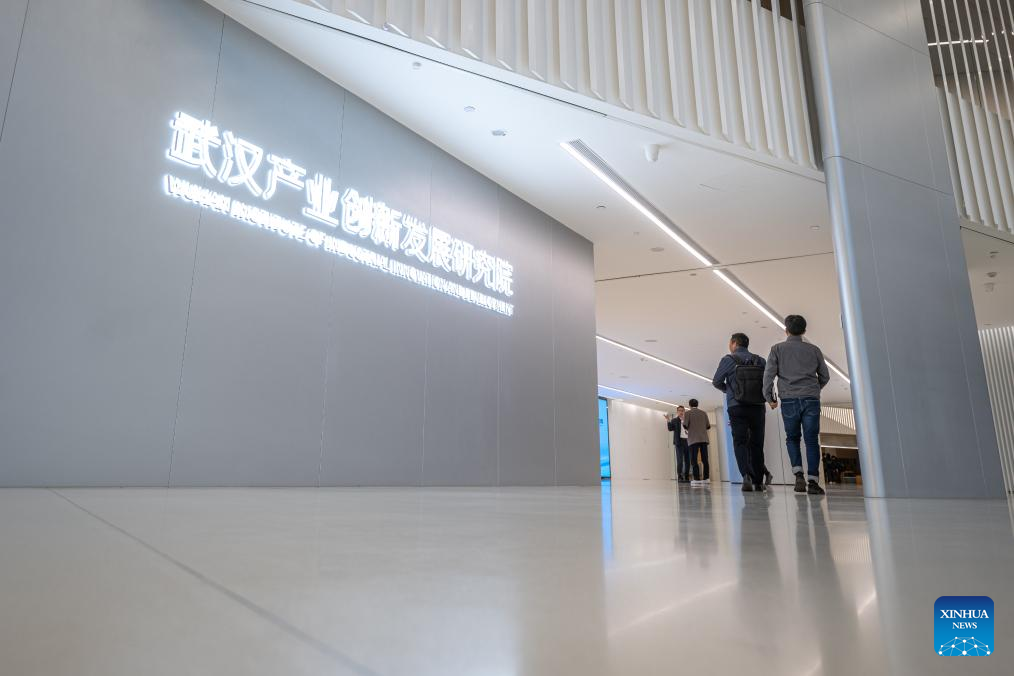
A humanoid robot named "Laborer No. 1" is displayed at the Wuhan Institute of Industrial Innovation and Development in Wuhan, central China's Hubei Province, Nov. 5, 2024. (Xinhua/Xiao Yijiu)
WUHAN, Nov. 8 (Xinhua) -- Standing beside a robot, Dou Qiaoqi highlighted its capabilities, noting that "Its arms can lift weight up to 40 kilograms, which makes it ideal for labor-intensive tasks."
Dou, chairman of Wuhan Glory Road Intelligent Technology Co., Ltd., showcased a humanoid robot named "Laborer No. 1," developed for industrial applications, at a building of the Wuhan Institute of Industrial Innovation and Development (WHIIID), central China's Hubei Province.
The robot is expected to enter trials at remote power stations next year, where it could significantly reduce the need for human operators in faraway locations.
"Many substations in remote areas are unattended, making it difficult to maintain when there is a failure, and workers must be sent from a long distance. In this case, the stationed robots can be awakened to replace humans for operation and maintenance," Dou said.
The WHIIID, founded in June 2021 and put into operation in April 2022, serves as a government-backed research entity focused on bridging the gap between research institutions and industry. It takes on projects that traditional academic institutions or corporations cannot readily address, positioning itself at the forefront of technological transformation and industrial modernization.
Yan Jianbing, president of Huazhong Agricultural University, introduced their project and showcased it at the WHIIID. "Our goal with this project is to increase the protein content in corn."
Li Xiling, president of WHIIID, said that the institute has gathered top innovation teams consisting of over 700 personnel from home and abroad, transformed more than 600 technological achievements, and incubated over 260 tech companies.
"We help bridge gaps between research, industry, and investment," Li added.
WHIIID supports early-stage and high-tech projects through an industry fund that mitigates commercialization risks, according to Li.
Focusing on sectors such as biotechnology, photonic information, artificial intelligence and green energy, WHIIID has established 26 specialized research institutes, 48 enterprise innovation centers, and seven public service platforms.
The institute aims to strengthen strategic emerging industries, positioning Wuhan as a leader in advanced technologies that address critical industrial needs.
The Global Innovation Index 2024 released by the World Intellectual Property Organization in September ranks Wuhan 13th globally and 5th in China for tech clusters.
Technological achievements from the city, which has over 1,000 corporate R&D centers, have been applied in areas such as remote sensing monitoring, flood prevention and disaster relief, and bridge and railway construction.
In 2023, the number of high-tech companies in the city reached 15,323, a 21.09 percent increase year on year, ranking 5th among Chinese cities. The value added by the high-tech industry in Wuhan reached 549.45 billion yuan (76.92 billion U.S. dollars), accounting for 27.5 percent of the city's GDP. ■

A model of the Luojia-3 01 satellite is displayed at the Wuhan Institute of Industrial Innovation and Development in Wuhan, central China's Hubei Province, Nov. 5, 2024. (Xinhua/Xiao Yijiu)

This photo taken on Nov. 5, 2024 shows a view of the Wuhan Institute of Industrial Innovation and Development in Wuhan, central China's Hubei Province. (Xinhua/Xiao Yijiu)



